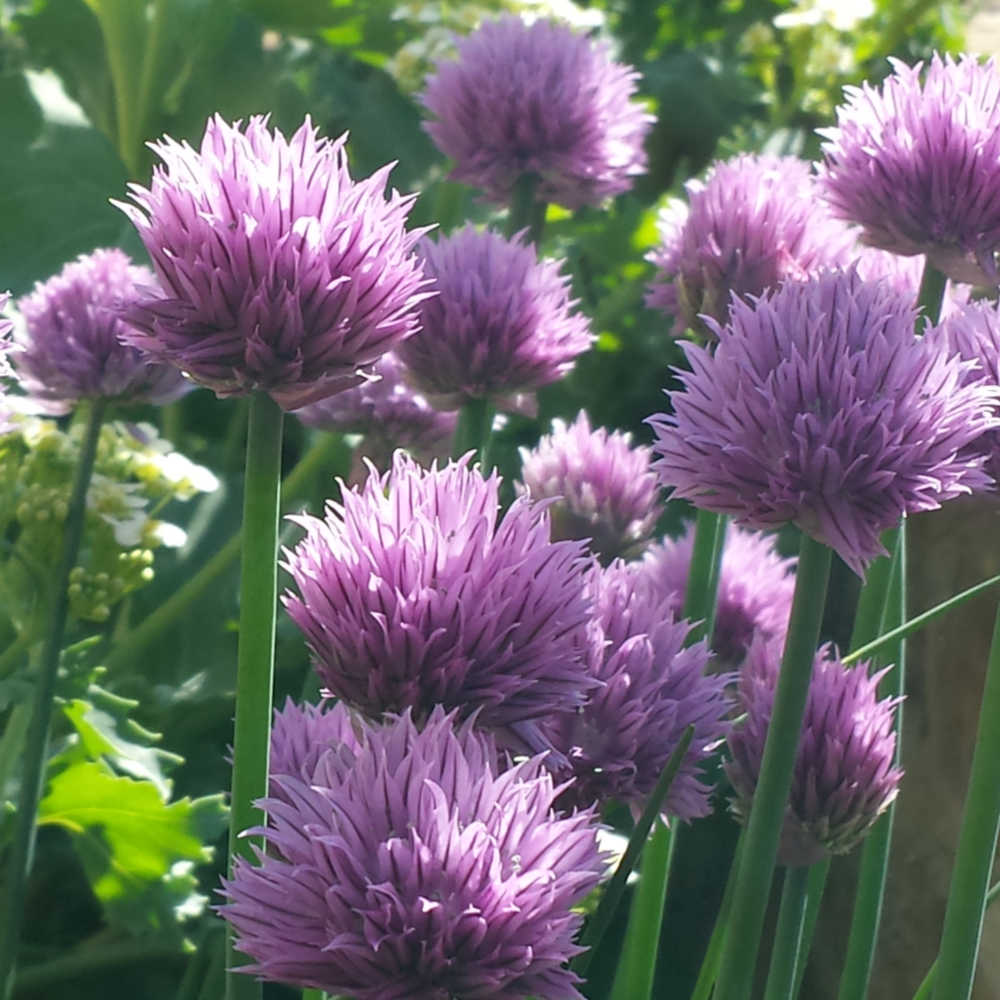
These organic gardening tips for beginners really are organic gardening tips for beginners. They are simple and easy to put into practice in your own garden even if you are totally new to gardening.
I can promise you that because when I started gardening organically 10 years ago, I had never gardened properly before in my life and to be honest hadn’t got a clue.
The only thing I knew was that I wanted to garden as gently and sustainably as I could and – if possible – to make my garden wildlife friendly. All very fine in theory, but I soon hit a problem: all the organic gardening tips I could find were way too complicated for a beginner like me.
I needed the simplest basics about organic pest control, organic soil and fertiliser and organic weed control but I couldn’t find them.
So I’ve learned the hard way by making mistakes – lots of them – but 10 years on, although I don’t have an award winning garden, our two tiny plots – front and back – have become a little wild life haven right in the middle of London.
Our Little Wildlife Haven
In the summer there is a constant buzz of bees on our lavender. We have a resident toad. Last year the blue tits fledged right into the kitchen and our visitors include woodpeckers, nuthatches, coal tits and long tail tits, gold finches and green finches, gold crests, swifts, bats, newts, dragonflies, stag beetles and butterflies – of all sorts – to name but a few.
And despite being no gardening expert we manage every year a freezer filling harvest of fruit, masses of herbs and simple but delicious vegetables in amongst the flowers. And all without nasty toxic chemicals.
So to help you as a beginner get started with your organic garden, I’ve put together a list of my absolute top organic gardening tips. They cover the fundamentals of :
- Organic pest control
- Organic soil & fertiliser
- And organic weed control
But they are not complicated.
So do give them a read and save for later so you can start planning your organic garden and create your own little wildlife haven.
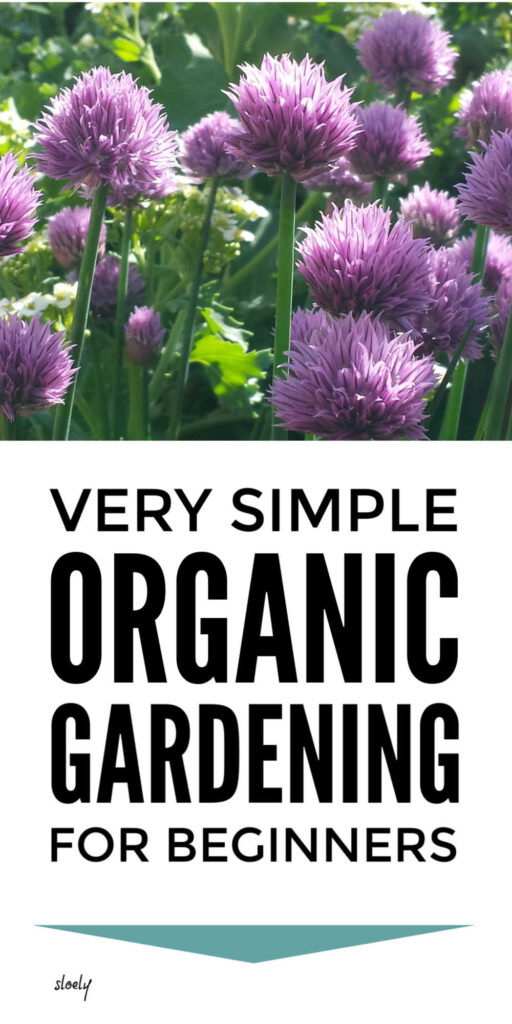
Organic Gardening Tips
1. Feed The Birds
You are going to get bugs in your organic garden. Lots of bugs. In fact you actually want bugs in your organic garden for pollination and healthy soil and more. Bugs only really become pests in the absence of predators who can keep them in balance.
The best predators for most garden pests are of course the birds, so you want as many birds as possible in your organic garden right from the beginning. That means feeding them.
I put feeders right in the middle of the areas where I have the most problem with pests e.g. my rosemary. When the small birds come to the feeder they also gobble up pesky rosemary beetles.
2. House The Birds
Birds are even better at organic pest control when they actually live in the garden and have babies in the garden. A typical clutch of 8 to 12 baby blue tits can get through 1,000 caterpillars between them every day.
That’s some serious pest control.
So put up a variety of different of bird houses to try and encourage as much nesting as possible from early spring right into the middle of summer.
3. Safe Spaces For Frogs & Toads
Frogs and toads can also be super powered predators in an organic garden, especially of slugs and toads and, very usefully, ants.
We put in a tiny pond – it was an afternoon’s work tops – and have left bits of broken plant pot and tiles in dark areas for the toads and newts to shelter in. Our resident toad Timmy used to live – most happily – in the middle of the compost heap, coming out in the summer to feast on ants.
4. Start A Ladybird Colony
Ladybirds – ladybugs to you Americans – are wonderfully helpful to the organic gardener in controlling aphids and especially black fly.
You can send away for ladybird larvae to help establish a colony. I’ve not had much luck with this trick and have done better attracting ladybirds in with fennel and cow parsley both of which they love.
Do make sure as a beginner you actually know what a baby ladybird and its pupa look like – I had no clue – as you don’t want to be accidentally massacring them. This is them …
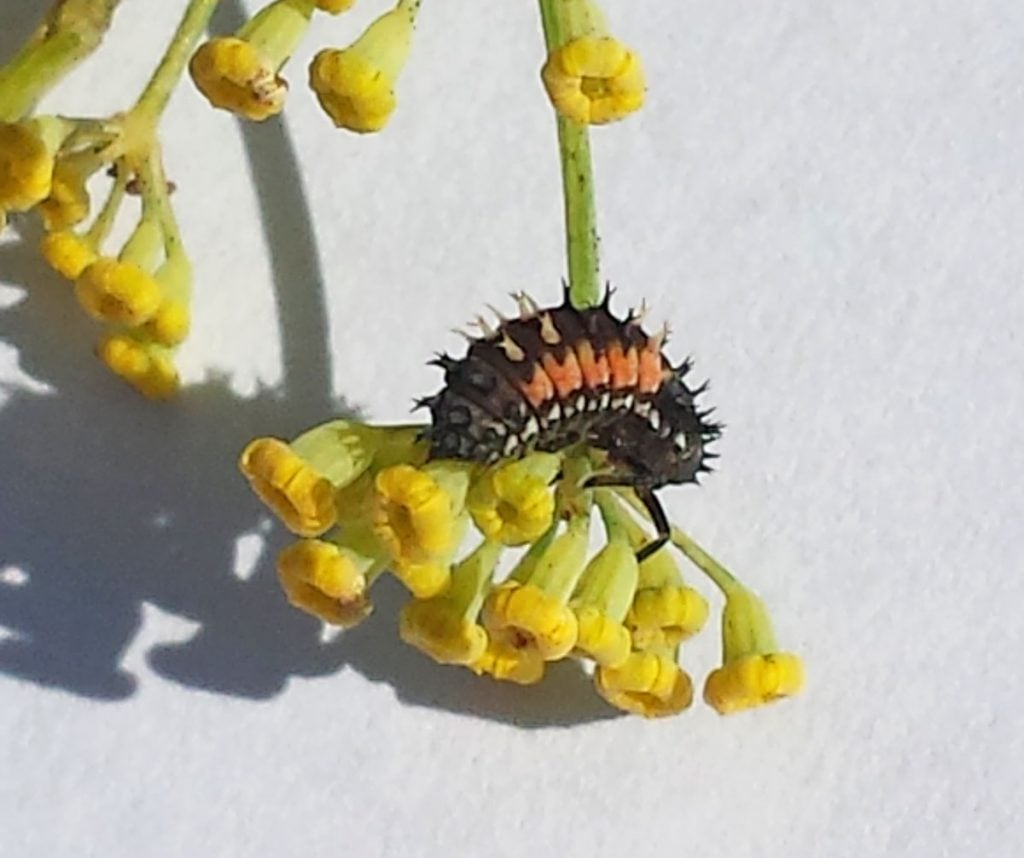
5. Attract Bees With Lavender
All gardeners, organic or not, need bees for pollination. One of the biggest problems with garden pesticides – including those for ants – is that they are killing the bees we all depend upon.
One of the easiest ways to get bees in the garden is some lavender. It will grow in really poor soil and is pretty drought tolerant but survives the downpours of a British summer. My front garden is full of it and when you stand there in the summer there is a constant hum of bumble bees and honey bees but even just a few pots – they’ll survive neglected – will attract bees in who will then pollinate other stuff.
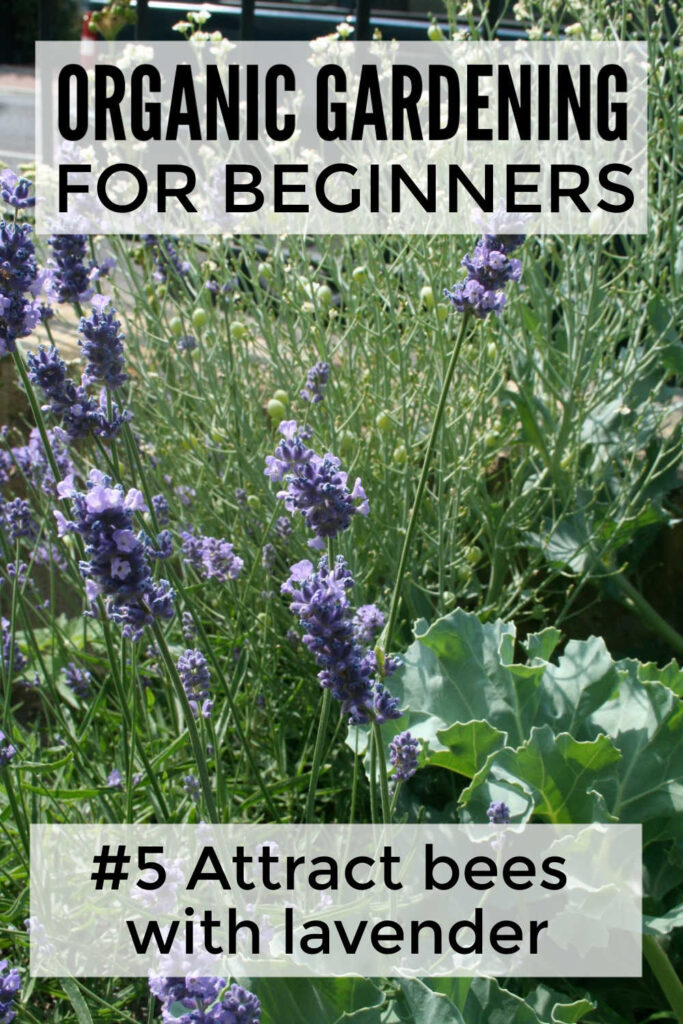
6. Avoid Monocultures
It’s very tempting as new gardeners to keep things very simple by planting lots of one thing. My hard earned advice is don’t.
Single crop beds and single species hedges are an invitation for specialist pests – usually moth caterpillars or beetles – to reek havoc. We had two long borders of box hedge that got hit by the box caterpillar. As a single species hedge, it had no resistance to the onslaught.
So do, what gardeners and farmers would have done traditionally and mix up beds and hedges as much as you can and start to learn about companion planting.
7. Companion Planting
Companion planting is a really simple idea but a really powerful tool for the organic gardener. Its basically about looking for different plants that work well together in repelling pests.
The fragrance from chives for example, can repel pests from carrots, so if you’re planting carrots plant some chives amongst them.
Companion plants can also be used as:
- Sacrificial plants : for the pests to eat rather than your prize crop, e.g. let aphids eat easy to grow nasturtiums rather than runner beans.
- Predator attraction : some good predator bugs are especially attracted to mint for example, so planting it amongst your veggies will attract the bugs you need for totally natural organic pest control.
I’ve got lots of tips on companion planting here …
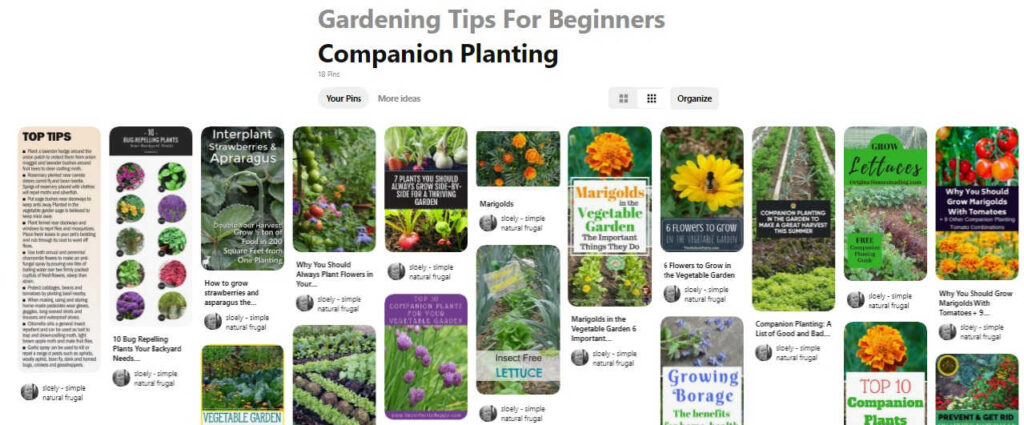
8. Ground Cover
Weed killers are the other big nasty in the garden along with pesticides. They are killing essential insects and in doing so actually destroying our soil. But keeping on top of the weeding can be hard.
So do plant ground cover in between plants that can :
- Keep weeds at bay, e.g. heathers
- Act as a supportive companion plant e.g. nasturtium
- Lock nutrition into the soil, e.g. beans & peas
9. Compost
As you start exploring organic gardening, you’ll find loads of stuff about “no dig”. This is highly recommended as a way of increasing soil quality.
And increasing soil quality is one of the big aims of organic gardening. Too much of our soil is literally dead because of the stuff sprayed on it that’s leached out nutrients and killed off essential bugs.
But the thing is as a beginner, it’s almost impossible not to dig because you are going to make a whole heap of mistakes, putting the wrong thing in the wrong place and killing it. You can’t garden successfully without making mistakes and some of them will be humdingers. Mine certainly were.
If you’re constantly angsting about “no dig” you’ll get in a big tizzy.
So focus on compost. Generate as much as you can from food waste either in a compost heap or wormery and feed your garden with it. As a beginner at organic gardening this is the easiest way to improve soil quality.
10. Declaring War
Turning our gardens into havens for birds, bats, amphibians, ladybirds and more really is the big secret to organic pest control.
But there are times when you have to declare war. Especially if – as happens sometimes – a new pest turns up in town. We had this problem with the box caterpillar which only arrived in London two years ago.
At this point it is worth looking out for pheromone traps. These are especially useful for controlling specialist moths e.g. on fruit trees. The pheromone attracts the adult moths into the trap so they are unable to mate and the caterpillar cycle is broken.
I’ve used these traps to stay on top of our box hedge moths organically when other gardeners locally have lost their hedges even though they were spraying them with pesticides.
Another great victory for organic gardening. Hurrah!!
Although, of course, there are times when organic gardening isn’t easy. You can get bogged down and be tempted to just “spray the pests away” but the problem is, every time we do that we destroy all the good stuff as well.
And the absolute joy of organic gardening is not just what you grow but all the amazing creatures large and tiny, you get to share your garden with.
So do give organic gardening a go and use these simple tips to create your own little wildlife haven. I’ll be sharing more organic gardening for beginners tips over the coming months so do follow my gardening tips for beginners boards on Pinterest to see more.